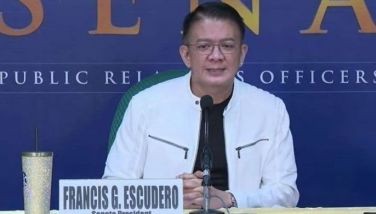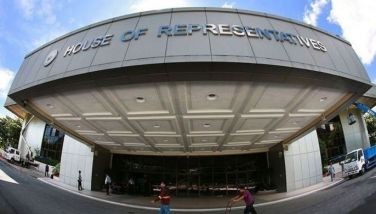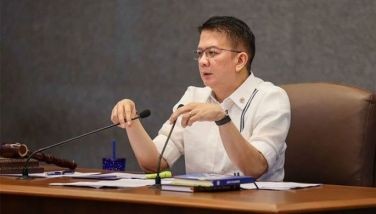Villar bill would have kept Kristel in school
MANILA, Philippines - University of the Philippines student Kristel Tejada would have been allowed to continue her studies if Sen. Manny Villar's "Anti-No Permit, No Exam" bill was passed by the present Congress.
Villar filed Senate Bill 2992 or the ‘Anti- No Permit, No Exam Act’ on October 11, 2011, but it was not approved during the current Congress.
The senator said that he filed the bill because he believes that "no permit, no exam" policy goes is against the youth's right to education.
“We have said it before, the ‘No Permit, No Exam’ policy of some schools is not just. It is a constraint on our children’s right to education,†said Villar, whose term as senator will end on June this year.
The bill's counterpart measure, filed by Las Piñas Rep. Mark Villar, passed on third and final reading in the House of Representatives on August 3, 2011.
Under the measure, disallowing students with dues, unpaid tuition and other school fees from taking the midterm or final examination is unlawful.
It said that students should not be required to secure a permit from school authorities before being allowed to take the examinations.
The bill also prevents the payment upon enrolment of a down payment or first installment equivalent to more than 30 percent of the total amount of the tuition and other school fees for the entire semester or duration of the course.
Villar said he will ask his wife, Cynthia, to pursue the passage of the measure if she wins her senatorial bid this May.
Inquiry
Sen. Francis Escudero, meanwhile, said that he would seek an inquiry into the UP system to find out if the government-run university has been serving its mandated purpose of providing accessible education to deserving students.
"Equal access to education is one of my advocacies. And being a product of the UP myself, I sympathize with those who are unable to afford college tuition even with subsidies provided by the state university," Escudero said.
Sen. Loren Legarda, for her part, called on the state universities and colleges to review their respective policies on providing opportunities to students who want to study, and yet unable to do so due to lack of financial support.
Legacy fund
In the light of Tejada’s death, Sen. Edgardo Angara called on the government to establish a legacy fund for education out of the revenues derived from the exploitation of the country’s natural resources.
Angara lamented that public investment in education as a percentage of gross domestic product has been declining. He said that from a high of 3.8 percent in 1998, the present ratio is down to 2.1 percent, barely half of the United Nations’ recommendation of at least 6 percent.
The K-12 program alone will require as much as P56.6 billion by 2017-2018 to finance senior high school (Grades 11 and 12) enrollment and additional teachers, classrooms, seats, textbooks, and toilets.
Angara cited the government’s income stream from the Malampaya natural gas project as a possible major source for the legacy fund.
He said government share in the proceeds from the Malampaya natural gas project amounted to half a trillion pesos for the past 11 years, averaging $1 billion a year. The remaining 13 years left to the project are expected to further yield P580 billion in revenues for government.
“We should take our cue from the likes of Norway and Timor Leste which have set aside a substantial portion of their oil and gas revenues for social services, especially education,†Angara said.
Other important sources for the legacy fund are the Philippine Amusement and Gaming Corporation and the Philippine Charity Sweepstakes Office, both of which are expected earn about P100 billion each this year.
- Latest
- Trending

































